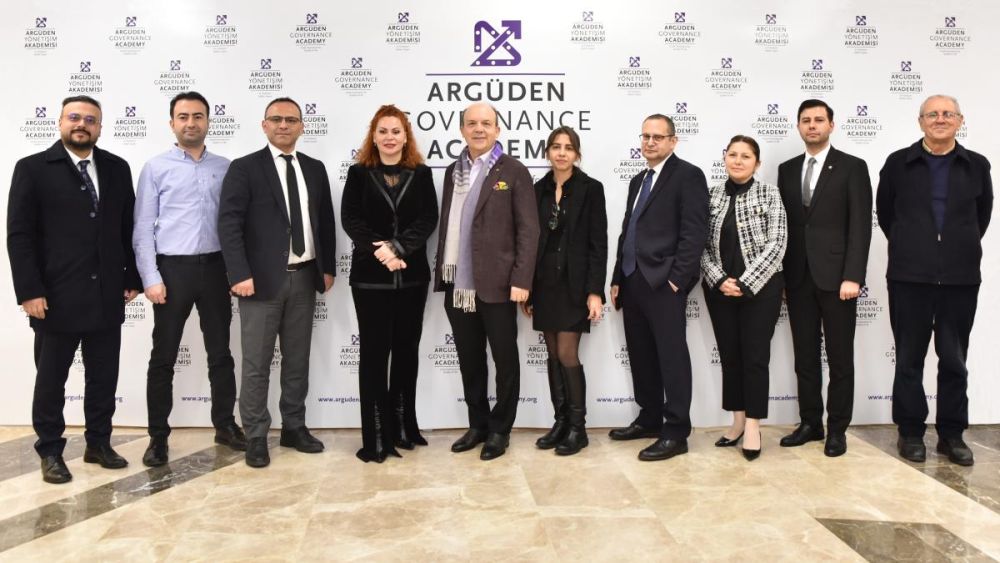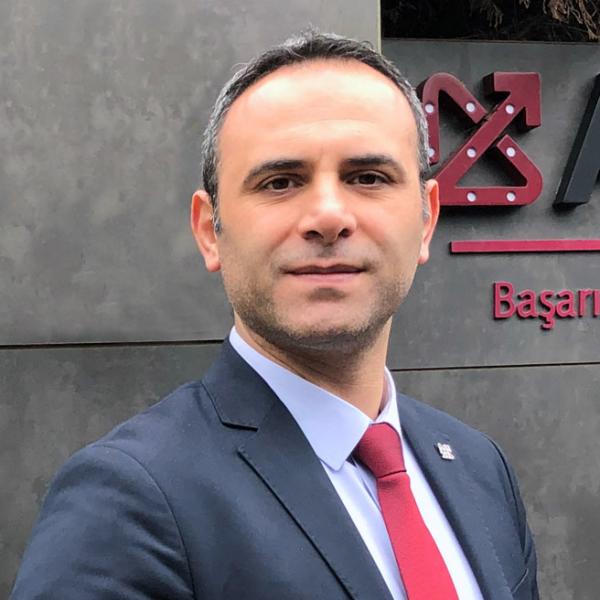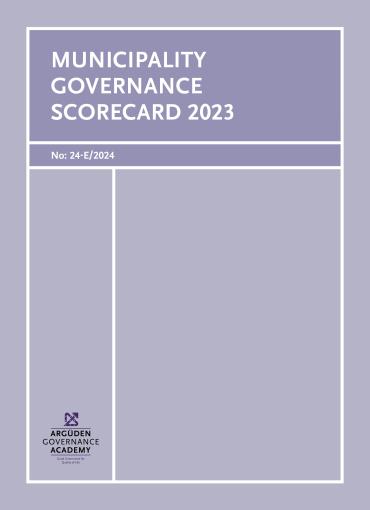The average score improved from 5.0 in 2018 to 5.6 in 2023, as well as the number of district municipalities that reached the 6.25-7.5 scoring band having increased from 3 to 9, thanks to numerous initiatives adopted by Istanbul district municipalities such as the European Label of Governance Excellence (ELoGE), Municipality Integrated Report (A global first), and Participative Budgeting.
In 2018, the Argüden Governance Academy developed a unique Scorecard© to measure the quality of local governance with a citizen-centric approach. The Scorecard approach was recognized as an innovative best practice by the United Nations and the OECD (Organization for Economic Co-operation and Development). Several local governments and NGOs in Türkiye already started to adopt some of the recommendations of the Municipality Governance Scorecard. After a period of five years, the Academy renewed the research in 2023. The results of the 2023 research were presented to the public through a conference held on January 11, 2024, at Altınbaş University 100th Year Hall. The good governance practices of 37 Istanbul District Municipalities were evaluated from the perspective of citizens by examining publicly available data.
Local Governance Quality Directly Impacts the Quality of Life for the Citizens
The adoption of good governance as a culture in the decision-making and resource utilization processes of local governments enhances the trust and satisfaction of citizens, ultimately improving their quality of life. The effective and fair use of authority and resources entrusted to decision-makers also contributes to the development of democracy and progress. Dr. Yılmaz Argüden, the Chairman of the Board of Trustees of Argüden Governance Academy, delivered the opening speech of the conference, emphasizing the importance of embracing good governance as a culture, starting from local governments, and extending to every institution. Dr. Argüden stated the following: “Municipalities constitute an area where the citizen interactions with the government gain greater importance. Therefore, local governments are the starting point for applying good governance for inclusive development and sustainable future. Improving the quality of information shared with the public, improving inclusive and meaningful participation, and improving the service processes with a continuous learning perspective are the keys for building trust and reinforcing democracy. Embracing the 7 good governance principles, namely consistency, responsibility, accountability, fairness, transparency, effectiveness, and participation, reinforces social trust and citizen satisfaction for local governments.”
Advisory Board Member of the Municipality Governance Scorecard Project Enver Salihoğlu emphasized the value-creation of the Municipal Governance Scorecard in his opening speech, highlighting its significance in establishing a trust relationship between the municipality and the citizens. He stated, "We can say that the 21st-century democracy method is the understanding of 'governing together and stakeholder engagement based' Local governments represent the most useful application for this. This reassessment Scorecard, conducted five years later, is also important in terms of comparison with the previous evaluation."
Dr. İnan İzci, presenting the approach of the research, stated, "This study is the world's first citizen-centered good governance measurement tool. Our main goal is to develop a culture of good governance. The report focuses on the functioning and methods of operation rather than the performance of our municipalities. The assessment was made based on documents and information shared openly by the municipalities."
Sharing the research results, Dr. Erkin Erimez compared the results with the previous report, indicating a significant improvement in governance over the past five years. He stated, "We can say that there are positive advancements in some areas, while there is regression in others. However, it's a process, and recognizing shortcomings and striving for improvement are crucial parts of this study and good governance."
During the conference, municipalities progressing in their governance journeys according to the comparative results of 2018-2023 shared how they have progressed in their governance journeys. The panel included 6 İstanbul district municipalities; Avcılar, Bağcılar, Fatih, Kadıköy, Sultanbeyli, and Şişli municipalities.
Rana Seymen, the Strategy Development Manager of Avcılar Municipality, emphasized the need for local development to talk about national development, highlighting the importance of transparency and consensus mechanisms.
Serbay Öztürk, the Strategy Development Manager of Bağcılar Municipality, thanked the Academy for creating an opportunity to share good examples among municipalities. He said, "These studies shed light on our strategic planning efforts."
Çise Kan, the Chief Advisor of Fatih Municipality, mentioned integrating data-driven work into their daily activities, stating that they improved effectiveness of their services with data driven decision making.
Can Nurkan Akbal, the Strategy Development Manager of Kadıköy Municipality, highlighted the usefulness of Integrated Thinking and Integrated Reporting for their municipalities, suggesting that making it mandatory by the Ministry of Interior would be beneficial for everyone.
Mehmet Aktaş, the Strategy Development Manager of Sultanbeyli Municipality, emphasized that they organize to obtain the right to use the Europen Label Of Governance Excellence every year, stating that they are continuously improving service quality with what they have learned through Integrated Municipality Governance Model.
Bahar Yıldırım, an Urban Planner from Şişli Municipality, who obtained the right to use the European Label of Governance Excellence said, "In participatory budgeting, we benefit from the views and suggestions of all segments, even 7-year-old children. Because we serve the entire community of all ages, and we believe it is important to benefit from everyone's thoughts.
To collect data in the Municipality Governance Scorecard, 227 indicators were utilized, reflecting the 7 principles of good governance, 4 governance processes, and the 3 dimensions of organizational learning. These indicators are evaluated by citizens and other stakeholders, accessing digital documents and information regarding district municipalities, and responding with "available" (yes) or "not available" (no).
In the research, municipalities are not ranked against each other but grouped based on certain score intervals according to their governance performance. These groups consist of 8 intervals between 0 and 100 points. According to the research results, there is progress in the average scores of Istanbul district municipalities compared to 2018. In 2018, the majority of 37 municipalities were grouped in the 375–624-point range, while in 2023, the majority progressed to the 500–624-point range. The good governance scorecards of Istanbul District Municipalities largely fall below 749 points. Municipalities in the 625–749-point range, listed alphabetically, include Avcılar, Bağcılar, Beşiktaş, Çekmeköy, Kadıköy, Maltepe, Sarıyer, Sultanbeyli, Şişli District Municipalities. It is noteworthy that these municipalities engage in stakeholder and citizen-focused Integrated Reporting, have the right to use the European Governance Excellence Brand, use participatory budgeting processes, embrace inclusive policies, and prioritize continuous learning and development.
On the contrary, Arnavutköy, Ataşehir, Bahçelievler, Bakırköy, Başakşehir, Beykoz, Beylikdüzü, Beyoğlu, Büyükçekmece, Esenler, Esenyurt, Eyüpsultan, Fatih, Gaziosmanpaşa, Kağıthane, Kartal, Küçükçekmece, Sancaktepe, Sultangazi municipalities fall within the 500–624-point range. It is noteworthy that Büyükçekmece and Esenyurt municipalities, which were in the lowest group of 250-374 points in 2018, have progressed in two groups, indicating positive development.
In the 375–499-point range, Bayrampaşa, Güngören, Pendik, and Silivri municipalities are included, while Çatalca municipality is in the 250–374-point range.
The scorecards for district municipalities are determined under three main headings: process governance, governance principles, and the learning cycle, resulting in an overall score. Detailed subheadings are also present under these three main headings. Across district municipalities, the lowest scores are observed in the areas of representation and participation, measurement and learning, responsibility, and sensitivity. There are significant areas for improvement in the field of good governance even for the highest scoring municipalities.
Key Steps for the Development of Good Governance in Istanbul District Municipalities
Municipality Governance Scorecard includes concrete policy recommendations to enhance good governance at the municipal level. Under the overarching themes of data-driven management, quality of information sharing, meaningful and effective stakeholder participation, determination of integrated governance approach in municipalities, and continuous learning and development, the policy recommendations also encompass legal regulation suggestions for these areas.
Related People



















